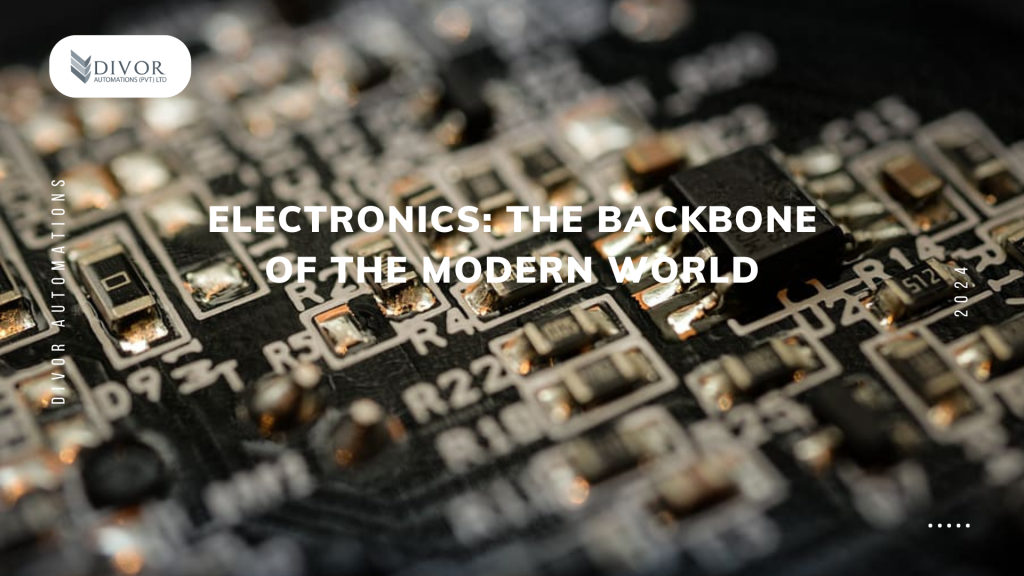The field of electronics has always been at the forefront of technological evolution, driving advancements that shape the modern world. From smartphones to electric vehicles and quantum computing, the future of electronics is poised to revolutionize industries and redefine human interaction with technology.
Key Trends and Innovations in Electronics
1. Miniaturization and Flexibility
The relentless pursuit of smaller, lighter, and more efficient electronic components continues to define the industry. Innovations in nanotechnology and flexible electronics are paving the way for foldable smartphones, wearable health monitors, and devices that integrate seamlessly into clothing or the human body.
Flexible circuits, built on materials like graphene or polymer substrates, are enabling new applications in healthcare, consumer electronics, and even space exploration.
2. Sustainability and Eco-Friendly Design
As environmental concerns grow, the electronics industry is prioritizing sustainability. Green electronics focuses on reducing e-waste, using biodegradable materials, and improving the recyclability of components. Technologies like energy-harvesting circuits, which power devices using ambient energy sources, are gaining traction.
Additionally, companies are shifting to low-power designs, enabling longer battery life and reducing energy consumption in everything from smartphones to industrial sensors.
3. Quantum Computing
Quantum computing represents a seismic shift in computational power, leveraging the principles of quantum mechanics to perform calculations exponentially faster than traditional systems.
- Applications include drug discovery, financial modeling, and cryptography.
- While still in its infancy, quantum processors like those from IBM and Google are making significant strides toward practical use cases.
4. 5G and Beyond
The rollout of 5G networks is unlocking unprecedented speeds and connectivity for electronic devices. Beyond 5G, 6G research is underway, promising even faster data transmission, ultra-low latency, and seamless integration with AI-driven systems.
This connectivity will drive advancements in autonomous vehicles, smart cities, and the Internet of Things (IoT).
5. Artificial Intelligence (AI) Integration
AI is no longer confined to software; it is now embedded directly into hardware. AI accelerators, specialized chips designed for machine learning tasks, are being integrated into devices to enable real-time decision-making and automation.
For example:
- AI-enabled cameras can identify objects and enhance images dynamically.
- AI processors in smartphones enable personalized user experiences and improved power management.
6. Energy Storage and Wireless Power
The future of electronics heavily depends on breakthroughs in energy storage and power delivery.
- Solid-state batteries promise higher energy density, faster charging, and improved safety.
- Wireless charging technologies are evolving, allowing multiple devices to charge simultaneously over distances, eliminating the need for traditional power cords.
Emerging Applications of Future Electronics
- Smart Healthcare Devices
- Implantable sensors to monitor vitals continuously.
- Wearable electronics for early disease detection.
- Robotic surgery systems powered by AI.
- Augmented Reality (AR) and Virtual Reality (VR)
AR and VR devices are becoming more immersive and lightweight, with applications in gaming, education, and remote collaboration. Advanced displays and haptic feedback systems are central to this evolution. - Autonomous Systems
Electronics will play a critical role in autonomous vehicles, drones, and robots. With faster processors, advanced sensors, and AI integration, these systems will navigate complex environments with precision. - Space Exploration
Miniaturized and durable electronics are critical for space exploration. Innovations in power management, communication systems, and radiation-resistant components are driving new missions to the Moon, Mars, and beyond.
Challenges on the Horizon
Despite the promise of future electronics, there are hurdles to overcome:
- Supply Chain Disruptions: Dependence on rare earth materials and geopolitical tensions can affect production.
- Cybersecurity Risks: As devices become interconnected, protecting them from hacking and data breaches becomes paramount.
- Ethical Concerns: Issues around AI biases, surveillance, and privacy must be addressed as electronics become more intelligent and pervasive.
The Road Ahead
The future of electronics is bright, driven by the intersection of cutting-edge research and practical applications. Industries must stay agile, embrace innovation, and prioritize sustainability to harness the full potential of these technologies.
From reshaping healthcare to exploring distant planets, electronics will continue to be a catalyst for progress and an enabler of human potential. The possibilities are as vast as the imagination, ensuring that the future of electronics remains a story of endless innovation.




Sofia Helin
When, while the lovely valley teems with vapour around me, and the meridian sun strikes the upper surface of the impenetrable foliage of my trees, and but a few stray gleams steal into the inner sanctuary.